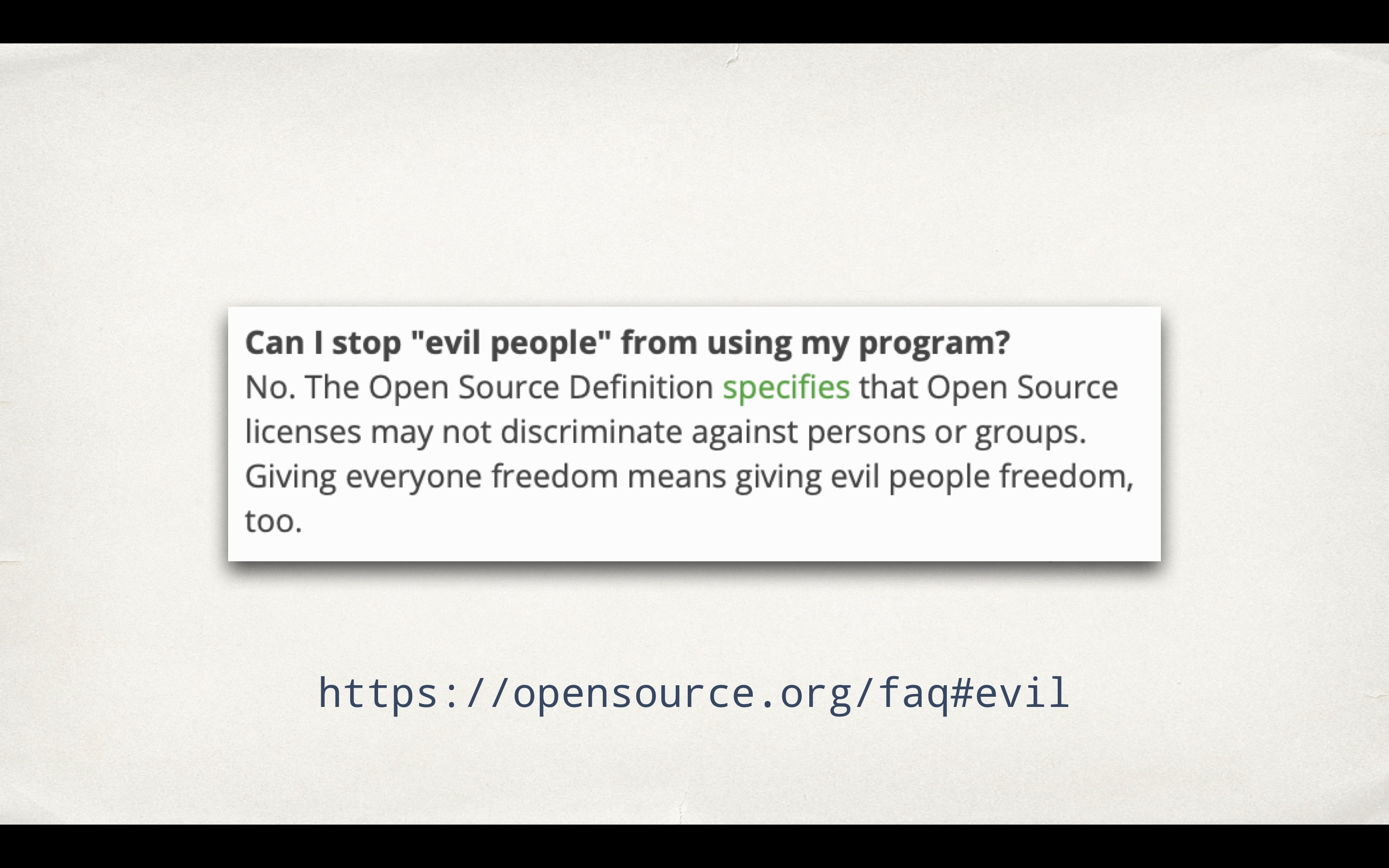

In the twenty years since the term “open source” was coined by Christine Peterson, our community has grown astronomically, all the while learning from its successes and failures. A lot has changed for open source developers in the past two decades. But the political and technological landscape has also changed.
Open source software today is increasingly playing a critical role in mass surveillance, anti-immigrant violence, protester suppression, racist policing, and the development of weapons used to kill marginalized people all over the world, among other humans rights abuses.
In recognition of this reality, there is a growing demand from open source developers to take control of how our software is being used. We don’t want our code used to aid those who commit human rights violations or other unethical behavior. We don’t want our software used to support fascist states. We don’t want our labor and our code used to enable global corporations to unfairly generate huge profits off the workers of the world. Yet we lack the tools to enforce fair, ethical, and community-minded terms for those who benefit from our work.
The increased debate around ethical source threatens to divide the OSS community. In his book "The Structure of Scientific Revolutions", philosopher Thomas Kuhn posits that there are three possible solutions to a crisis like the one we're facing: procrastination, assimilation, or revolution. Which will we choose as we prepare for the hard work of reconciling ethics and open source?
The video for the 2020 CopyleftConf is available on the Internet Archive.